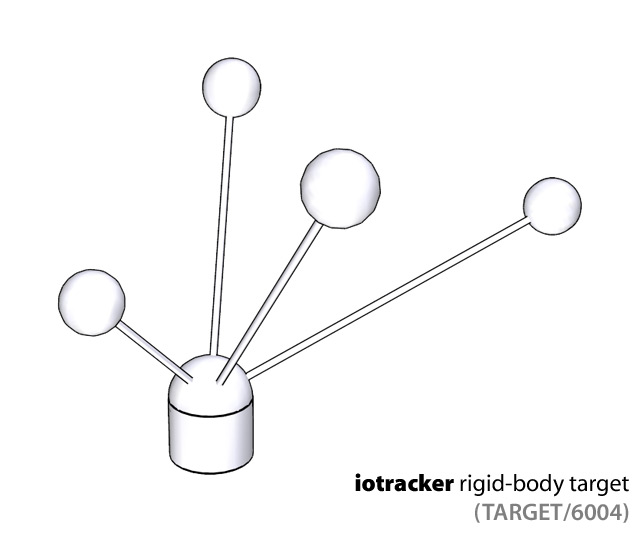|
|
LITR 5439 Literary & Historical Utopias Model Assignments
|
|
![]()
Alicia Costello
The Many Dichotomies of the Place
Called Utopia and its Fiction
Before I took this class, I believed utopias and utopian
fiction belonged to the insufferable dreamers and thinly-veiled political
activists. I had only read Anthem by
Ayn Rand and the thought of reading any more of the genre did not appeal to me.
I liked Anthem enough, but when I
read, I do not like to be so directly preached to. My reading experience was
like the average person, I suspect. Utopias were nice enough to dream about, and
I had plenty of ideas on how my
utopia would be run, but rarely thought of truly studying the idea beyond that.
Ultimately I was held back from utopias by judging them vague and impractical.
Now that I have studied just a few of the thousands of the utopian novels out
there, the novels have rid me of some of my misconceptions and enforced some of
my opinions. I shall use a working definition of “utopia” as a place in which an
individual is happy. This definition is intentionally vague because I believe a
utopia can be many things, including imaginary, fictional, or realized through
government or sub-culture. Ultimately, I believe utopia has
such a subjective vision that the
specific definition must be different for everyone else.
Because utopias
are vague, utopian fiction is likewise often vague and ill-defined. At any one
time, the reader of a utopian novel is reading a book which can be
cross-classified into many different genres, including action/adventure, science
fiction, romance, speculative fiction, dialogue, urban fiction, or political
manifesto. If we judge utopian fiction against Horace’s commandment that
literature should entertain and inform, utopian authors seem willing to give up
some entertainment for a more thorough explanation or repetition of ideas.
However, in accordance with course objective 1a, there are some standard
fictional conventions which let the reader know to pay attention to the utopian
ideas highlighted in the novel. At some point throughout the novels, the novice
will travel and be greeted by a guide. The novice then experiences a period of
cultural learning including reading or listening to oral stories, and learning
or experiencing a few conventional topics, including how the utopia’s government
functions, crime and workers’ conditions, the nuclear family, marriage
and sex, and education of the young.
Anthem reverses this narrative; the novice—the reader—is guided by Equality
7-2521 into the dystopian conditions of the collective and then follows Equality
to his individualist utopia, where he rids himself of all government, save his
own will, proving an individualist utopia, as questioned by course objective 3b.
It is also of note that a narrative evolution can be seen in the four texts we
have read. In Thomas More’s Utopia,
the ideas are only narrated by Raphael Hythloday and never actually experienced
by the novice, remaining forever a dream in text, like many utopias. In Edward
Bellamy’s Looking Backward, the
novice unintentionally travels to the utopia, and despite spending a vast amount
of time physically there, tediously receives most of his information orally from
Dr. Leete. Charlotte Gilman’s Herland
is the first novel in which the novice actually intentionally experiences the
utopia’s workings, traveling via airplane. In
Anthem, Equality intentionally flees
to a utopia of his own making. In
Ecotopia, Mr. Weston travels via Ecotopia’s own methods and is the first
novice to have multiple prominent guides. Through the narratives, utopias have
evolved from islands only dreamt about to living, breathing civilizations
exposed in fictional ethnographical study.
Having
contemplated the standards of utopian fiction, the advantages and disadvantages
of utopian fiction for study, both personal and culturally should now be
examined. I am still quite torn on the futility of studying utopias and utopian
fiction. Utopian fiction is an advantage to the scholar who reads literature to
understand human nature and ideas. How better to get to know a person than to
ask them to describe their perfect place? Utopian fiction also helps readers of
today understand historic attitudes against popular opinion or practice at the
time the book was written, with Utopia
being my favorite example as a gateway into studying the politics of the time,
for I have found utopian fiction to be almost exclusively the product of some
sub-culture or the other (3e). To expound upon course objectives 2c, 1d, and 1e,
utopian fiction is often, if not mostly, written chiefly to explain political or
social ideas; the author must be the word-artist and the political activist at
once. If the two come into conflict, the political activist will win. Horace
meant for literature to be 50% entertaining and 50% informative (or maybe, in
the divine, Christ-like sense, 100% entertainment and 100% informative). I
loosely estimate that most utopian fiction is 30% entertaining and 70%
informative (or, in keeping with the divine sense, the Gilgamesh of divinity:
33% entertaining, 66% informative). It is because of this shift that utopian
fiction, while being a great case-study in human ideals, often has the
disadvantage of being a bad or dull story. Utopian authors, I think it can be
safely said, are more willing than authors of other genres to write bad fiction
for the purpose of ideas, and therefore, much of utopian fiction becomes
thinly-veiled fiction espousing real-world political ideas.
This rudimentary mixing of fiction entertainment and
non-fiction ideas also highlights another disadvantage to utopian fiction: it
has a genre problem. Genres are fickle things to begin with, but adding into the
mix the identity crisis of the half-fiction, half-nonfiction utopian novel, and
the genre label becomes almost useless. A book is labeled a “utopian fiction”
because chiefly because it espouses political ideas, but it is not a manifesto
or essay, or in other words, because it is a fiction with non-fiction ideas.
Here, the books separate based on what
type of fiction the story uses to house the non-fiction ideas. Many utopian
novels also need a sub-genre to better classify the ideas, like ecotopia,
dystopia, or feminist utopia, and many books should be cross-listed like the
child of two prominent parents: dialogue-utopia, action-utopia, scifi-utopia.
Being cross-listed does have its advantages, though. It helps utopian fiction to
attract readers that would not necessarily read “literature of ideas” books and
opens utopian ideas to a wide variety of fictional locations and situations.
Utopian fiction also has the advantage of being a theme
throughout history, so for teachers of survey courses, where the goal is to get
a taste of as many different types of the same genre of fiction, utopian fiction
offers many vastly different kinds of literature
and has one of the most diverse
time-periods in literature. I don’t think I’ve ever participated in a course
that had Plato and hippie authors from the seventies on the same syllabus.
Utopian fiction is also represented across the western thought geographically,
from Greece to California, and cross-genre; it can be taught with action,
sci-fi, dialogue, etc. It is one of the most diverse genres in literature, and
therefore, conforms naturally to survey courses.
Since utopian fiction has the advantage of being so tied
historically to the time of its writing, these fictions are also able to be
studied across academic disciplines, regarding course objective 4. Utopian
fictions can be used to unpack history, human psychology, philosophy,
anthropology, and more. However, this has an ironic downside: utopian fictions
are not always effective tools for teaching their primary medium: literature. To
answer course objectives 2b, and 1a, I find that, since utopian authors will
sacrifice the traditional literary tools in order to highlight political
feelings, utopian fiction’s literary merits are often on life support.
Utopia and
Looking Backward are panned for their
entertaining literary merit (i.e. makes students fall asleep) while
Herland and
Anthem confuse and polarize readers.
To expand this idea to course objective 53, the utopian genre is rarely used in
schools because so many of the basic literary functions taught to students
(plot, character development, conflict) are absent or underdeveloped in the
story. Utopian fiction does not work particularly well in literature classes
because the authors of utopian fiction are smaller in number, less well-known,
and usually subpar to other writers; I imagine this stems from the reason the
authors pick up the pen—utopian authors write to get a point across, whereas
literary writers mix creativity and craft to produce art. As art, literary
authors make David. Utopian authors
make political cartoons. One is higher than the other.
I looked back at my definition, to see if I could make some
changes to it, define it a little more. Sadly, reading utopian fiction in all
its vast amounts only retains my skepticism that utopia will remain and
ultimately belongs as a fictional place, but one that’s healthy for the human
psyche—like Neverland. I agree with Katie Breaux’s 2009 midterm when she says
that individualism and personal relationships will ultimately come into contact
with utopian ideals, and the former will win every time. But I also agree with
her that the idea of utopia is important. But, in reaction to course objective
3c, I do not think the utopian instinct is or ever will perish from the earth.
Ultimately, I think historical utopias, whether from an idea in fiction or not,
only work when the members wholly and consciously buy into the message and
“mission statement” of the utopia, which is why the optional historical,
small-scale utopias of America survive, if only for a while. Utopias can only
truly operate backed by the zeal of its members, any brainwashing or
forced-choice upon any member of the community is ultimately against the message
of the utopia itself. I still find any kind of large, country-sized utopia as
impractical. Having given up on large-scale utopias, I would like to study
utopias on the small-scale: the nuclear family and small bands of individuals,
consisting of no more than five willing adults. I would also like to study the
abnormal family as well, perhaps polygamist families. I would like to try to
find ties that qualify small groups as utopias based on the rules for the
large-scale communities we have discussed in class. My future guiding questions
will be attempting to deem these small-scale communities (the community of the
family, extended family, and two or three families) as qualifying or
disqualifying for the status of “utopia.”


